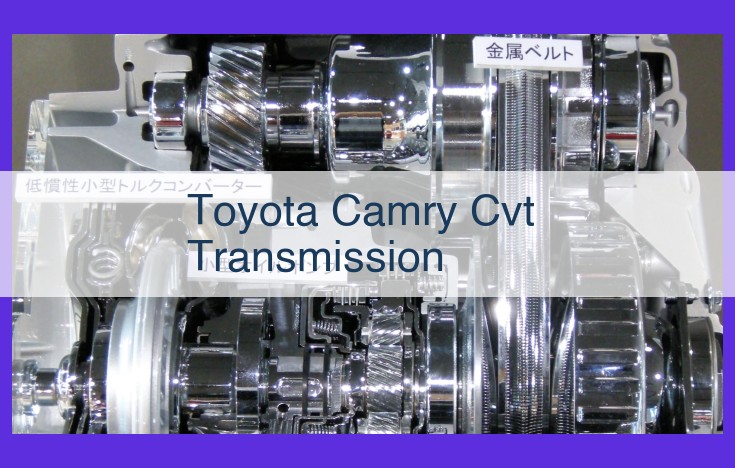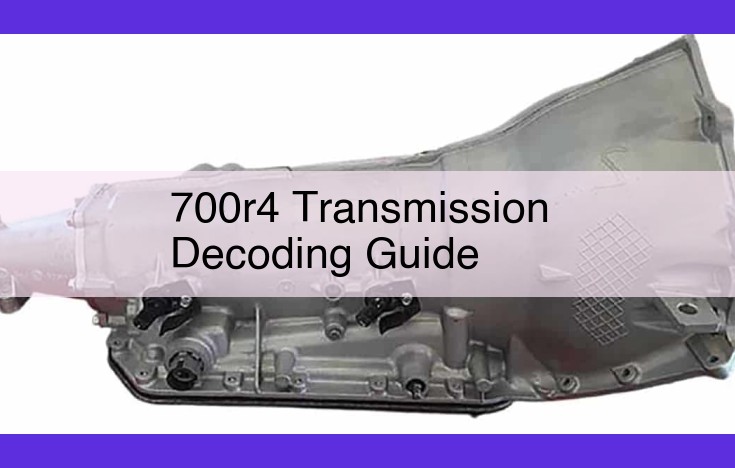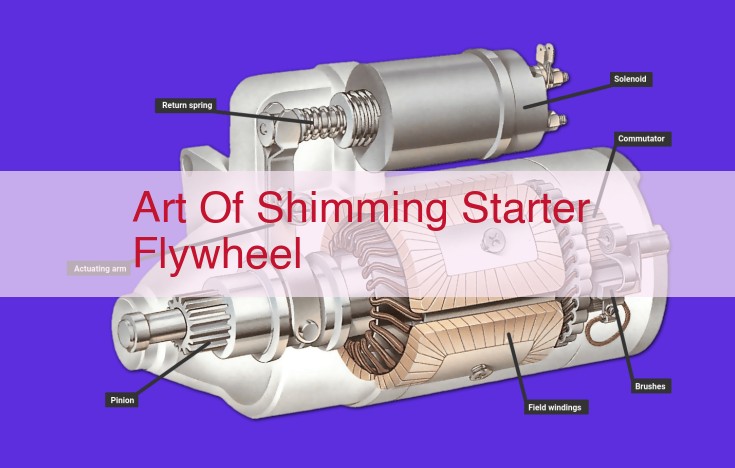Unusual car sounds, like an airplane’s engine, should be addressed promptly. Loose belts or a damaged alternator can cause squealing or rumbling noises. Exhaust leaks, mufflers, and wheel bearings can create loud, rhythmic sounds. Transmission issues or a bad catalytic converter may also be culprits. Engine knock is a serious issue requiring immediate attention. Early detection and maintenance are crucial for vehicle safety and performance.
**Identifying and Understanding Unusual Car Sounds**
Unusual car sounds can be alarming, especially when they resemble the rattling cacophony of an airplane engine. These noises often indicate a brewing problem that, if left unaddressed, can lead to more severe issues. It’s crucial to pay attention to these auditory cues and seek professional assistance promptly.
Why Promptly Addressing Unusual Car Sounds is Essential
Ignoring unusual car noises is akin to ignoring a sick body. Just as neglecting symptoms can lead to deteriorating health, disregarding car noises can cause the problem to escalate, potentially compromising safety and performance. Moreover, timely resolution can save you money and inconvenience in the long run.
Typical Causes of Unusual Car Sounds
The root of an unusual car sound can vary widely, but some common culprits include:
-
Loose or Damaged Belt: Squealing or whining noises often point to loose or damaged belts that are essential for driving the engine’s accessories. Neglecting belts can lead to overheating, electrical issues, and even engine failure.
-
Failed or Failing Alternator: A low rumbling or growling noise could indicate a failing alternator, responsible for charging the battery. Ignoring this issue can lead to electrical system failure and potential breakdowns.
Belt Troubles: The Squealing Sound of Neglect
When you hear a persistent squealing or whining coming from your car, don’t ignore it! It could be a sign of a loose or damaged belt.
Belts play a vital role in your engine’s operation. They connect various components, including the alternator, water pump, and power steering pump. When a belt becomes loose or damaged, it can slip or break, causing the affected components to malfunction.
The most common symptom of a belt issue is a squealing or whining noise. This is caused by the belt slipping as it tries to grip the pulleys it’s wrapped around. The noise is often most noticeable when the engine is cold or under a load, such as when you’re accelerating or turning.
Ignoring belt issues can lead to serious consequences. A loose belt can wear down prematurely, while a broken belt can cause overheating or other problems that could damage your engine. Therefore, it’s crucial to address belt issues promptly.
Regular maintenance is key to preventing belt problems. Most belts should be inspected and replaced as per the manufacturer’s recommended schedule. By taking proactive steps to maintain your belts, you can avoid costly breakdowns and keep your car running smoothly.
Unveiling the Mystery: Understanding the Low Rumbling of a Failing Alternator
Imagine cruising down the open road when suddenly, your car’s tranquility is shattered by an ominous low rumbling. It sounds like a distant airplane engine, but it’s coming from beneath the hood. This unsettling noise could signal a failing alternator.
An alternator is the unsung hero of your vehicle’s electrical system. It’s responsible for charging the battery and providing power to all the electronic components, from your headlights to your stereo. When an alternator starts to fail, its ability to generate electricity diminishes, leading to a drop in voltage.
This drop in voltage can manifest in several ways. One common symptom is a faint low rumbling or growling noise. This sound is often accompanied by dimming headlights, flickering interior lights, or a sluggish engine performance. If you notice these signs, it’s time to suspect alternator trouble.
The consequences of ignoring a failing alternator can be significant. A completely dead alternator will eventually drain your battery, leaving you stranded with a car that won’t start. Moreover, the electrical system can suffer severe damage, leading to costly repairs.
To avoid these unpleasant consequences, it’s crucial to address alternator issues promptly. If you hear an unusual low rumbling noise or notice other symptoms of a failing alternator, have your car inspected by a qualified mechanic as soon as possible.
Early detection and repair of alternator problems can extend the life of your vehicle and ensure a safe and enjoyable driving experience.
Exhaust Leaks: Loud Rhythms and Hidden Threats
The symphony of your car engine can turn into a jarring cacophony when an exhaust leak strikes. These leaks create a loud, rhythmic noise that not only disrupts the harmony of your drive but can also signal serious issues.
The Exhaust System: Unraveling the Rhythm
Your exhaust system plays a crucial role in reducing emissions and improving engine efficiency. It consists of several components: exhaust manifolds, catalytic converters, mufflers, and tailpipes. When any part of this intricate network develops a leak, the engine’s exhaust gases escape prematurely, creating that loud, rhythmic noise.
Environmental Concerns: Silent but Deadly
Exhaust leaks not only affect the acoustics of your car but also damage the environment. Unreleased exhaust gases contain harmful pollutants, including carbon monoxide, nitrogen oxides, and hydrocarbons. These pollutants contribute to air pollution, smog, and global warming.
Performance Implications: Choking Your Engine
Apart from environmental concerns, exhaust leaks can also diminish your car’s performance. As exhaust gases escape, the engine loses backpressure, which is necessary for optimal combustion. This can lead to reduced engine power, increased fuel consumption, and rough idling. Prolonged neglect can accelerate engine wear and tear.
Seeking Professional Help: A Symphony of Solutions
Diagnosing and repairing an exhaust leak requires professional expertise. Attempting DIY solutions can be dangerous and ineffective. A qualified mechanic can pinpoint the exact location of the leak, assess its severity, and recommend the appropriate repair.
An exhaust leak is not just a noise nuisance—it’s a potential threat to your car’s performance and the environment. Timely diagnosis and repair are crucial to restore the symphony of your engine and protect both your investment and the well-being of our planet. If you hear that loud, rhythmic noise, don’t ignore it—seek professional help today.
Bad or Leaking Muffler: The Silent Danger
Amidst the symphony of city traffic, the low rumble of a malfunctioning muffler can go unnoticed. But beneath the unassuming facade lies a potential threat to your car’s performance, safety, and the environment.
The Muffler’s Role:
Like a silencers on a trumpet, mufflers play a crucial role in reducing noise from your engine. By dampening sound waves, they not only create a quieter ride but also improve engine efficiency. A muffled engine operates smoother, reducing premature wear and tear.
Symptoms of a Bad Muffler:
- Excessive Noise: A damaged or leaking muffler will produce a loud, rhythmic roaring or rattling sound that increases with engine speed.
- Loss of Power: A leaking muffler allows exhaust gases to escape before they reach the catalytic converter, reducing engine power and fuel efficiency.
- Odor: If the leak is severe, you may smell the distinctive pungent odor of exhaust fumes in the cabin.
Consequences of a Leaking Muffler:
Ignoring a bad muffler can have serious consequences:
- Noise Violations: Excessive noise can lead to fines or legal issues.
- Health Hazards: Exhaust fumes contain harmful toxins like carbon monoxide, which can leak into the cabin when the muffler is damaged.
- Engine Damage: A leaking muffler allows moisture and corrosion to enter the exhaust system, which can damage catalytic converters or other components.
- Environmental Impact: Exhaust leaks release untreated pollutants into the atmosphere, contributing to air pollution.
Seek Professional Help:
If you suspect a problem with your muffler, it’s essential to seek professional assistance promptly. A mechanic can diagnose the issue, repair or replace the muffler, and ensure your car is operating safely and efficiently again. By addressing the issue early on, you can avoid costly repairs down the road and contribute to a healthier environment.
Worn or Damaged Wheel Bearings: A Silent Danger Lurking Beneath Your Car
Wheel bearings, the unsung heroes of your vehicle’s mobility, play a crucial role in ensuring smooth and safe driving. These unsung heroes are tiny but mighty, allowing your wheels to rotate effortlessly while carrying the weight of your car. But when these bearings become worn or damaged, they can unleash a symphony of unsettling noises that signal an impending threat to your vehicle’s performance and your safety.
Neglecting worn or damaged wheel bearings is a dangerous gamble. As they deteriorate, these bearings can lead to a cascade of problems that can compromise your driving experience and put you at risk. One of the most common symptoms of worn wheel bearings is a loud, grinding noise. This noise, which often resembles the roar of an airplane engine, intensifies when you accelerate, turn, or brake. If ignored, the grinding can become even more pronounced, accompanied by vibrations that rattle your entire vehicle.
Beyond the audible cues, worn wheel bearings also pose serious safety hazards. As they continue to wear, the bearings can become loose, causing the wheel to wobble excessively. This instability can lead to difficulty steering and increased stopping distances, making it harder to control your vehicle in critical situations. In extreme cases, a severely damaged wheel bearing can even cause the wheel to seize, resulting in a sudden loss of control.
To avoid these catastrophic consequences, it’s crucial to address worn wheel bearings promptly. If you suspect you may have an issue, listen closely for any unusual noises coming from your wheels. Pay attention to any grinding, roaring, or humming sounds, especially when turning or braking. If you detect any such noises, seek professional assistance immediately.
Don’t let worn wheel bearings undermine your driving experience and compromise your safety. By being attuned to the sounds your car makes and responding swiftly to any irregularities, you can ensure that your vehicle remains a safe and reliable companion on the road.
Uncover the Perils of a Bad or Clogged Catalytic Converter: A Tale of Compromised Emissions and Reduced Performance
Amidst the symphony of traffic, your car’s engine suddenly sends out a deafening roar, akin to a plane taking off. Panic sets in as you search for the source of this alarming noise. Could it be a failing engine or a more sinister issue?
As you pull over and pop the hood, a pungent odor fills the air. You notice a strange rattling sound coming from beneath the car, and you realize the culprit may lie in the catalytic converter. This essential component, often overlooked, plays a crucial role in reducing harmful emissions from your vehicle.
But when the catalytic converter malfunctions, a cascade of problems can ensue.
-
Environmental Hazard: A bad or clogged catalytic converter compromises its ability to break down toxic gases, releasing them into the atmosphere. This poses a significant threat to both human health and the environment.
-
Reduced Engine Performance: A clogged catalytic converter restricts the flow of exhaust gases, causing poor fuel economy, sluggish acceleration, and even stalling.
-
Increased Fuel Consumption: The engine compensates for the reduced exhaust flow by burning more fuel, leading to a noticeable drop in your gas mileage.
-
Check Engine Light Illumination: The engine’s computer monitors the catalytic converter’s performance. If it detects a malfunction, it will trigger the dreaded Check Engine Light, alerting you to a problem that needs immediate attention.
Don’t ignore these symptoms! A bad or clogged catalytic converter is not only an environmental hazard but also compromises your car’s performance and efficiency. Early detection and repair are crucial to prevent costly engine damage and protect the health of both your vehicle and the planet.
Engine Knock: A Symphony of Trouble
Identifying the Warning
When an engine knock strikes, it’s like an unwelcome symphony, disrupting the once-smooth rhythm of your ride. This metallic tapping is a telltale sign that something is amiss within the engine’s depths. But what exactly is causing this discordant sound, and why is it so critical to address it promptly?
Causes and Consequences of Engine Knock
Engine knock occurs when the air-fuel mixture in the combustion chamber detonates prematurely, instead of burning smoothly. This abnormal combustion creates high-pressure shockwaves that rattle against the engine’s components, resulting in that distinctive knocking sound. Several factors can contribute to engine knock, including:
- Low-octane fuel: When fuel with an octane rating lower than recommended is used, it can ignite prematurely, causing detonation.
- Engine overheating: Excessive heat can accelerate the combustion process, leading to knock.
- Carbon buildup: Accumulated carbon deposits in the combustion chamber can act as hotspots, promoting detonation.
- Faulty ignition timing: If the spark plugs fire at the wrong time, it can disrupt the combustion process and cause knock.
Immediate Attention Required
Engine knock is not a minor inconvenience; it’s a serious warning that the engine is under duress. Ignoring this sound can have dire consequences:
- Increased engine wear: The shockwaves from detonation can damage engine components, such as pistons, connecting rods, and bearings.
- Reduced engine power: Knocking can sap engine power, making it difficult to accelerate or maintain speed.
- Potential engine failure: In severe cases, engine knock can lead to catastrophic engine failure, resulting in costly repairs or even replacement.
Seeking Professional Assistance
If you encounter engine knock, don’t delay in seeking professional assistance. A qualified mechanic can diagnose the underlying cause and recommend appropriate repairs. This may involve adjusting ignition timing, cleaning carbon deposits, or even replacing damaged components. By addressing engine knock promptly, you can restore your vehicle’s smooth operation, prevent further damage, and ensure its longevity.
Transmission Issues:
- Describe the potential transmission problems that can cause airplane-like noises.
- Explain the consequences of ignoring transmission issues and the importance of regular maintenance.
Transmission Issues: The Unsettling Airplane Noise in Your Car
When you hear an airplane-like noise coming from your car, it’s crucial to take action promptly. This unfamiliar sound could indicate a transmission problem, a complex system that plays a vital role in controlling your vehicle’s power.
The transmission engages different gears, allowing you to accelerate, cruise, and engage in reverse. When transmission components wear or fail, it can result in a range of unusual noises, including the unsettling resemblance to an aircraft engine.
One common transmission issue is a slipping clutch. This occurs when the clutch assembly, which connects the engine to the transmission, becomes worn. As a result, the clutch may struggle to engage properly, causing the engine to rev higher than normal, creating a whining or grinding noise.
Another potential transmission problem is worn or damaged gears. When gears are damaged or worn, they can produce a rattling or clunking sound, particularly when shifting gears. This issue can gradually worsen, leading to more severe damage if not addressed.
Leaking transmission fluid can also contribute to airplane-like noises. Transmission fluid is essential for lubricating and cooling the transmission components. When fluid leaks occur, it can lead to low fluid levels and increased friction, resulting in a hissing or whining noise.
Consequences of Ignoring Transmission Issues
Ignoring transmission issues can have severe consequences for your vehicle. When transmission components are not functioning correctly, it can lead to:
- Power loss: Difficulty accelerating or maintaining speed.
- Shifting problems: Transmission may struggle to engage or disengage gears.
- Increased fuel consumption: Inefficient gear engagement can reduce fuel efficiency.
- Premature transmission failure: Neglecting transmission issues can lead to catastrophic breakdowns and expensive repairs.
Importance of Regular Maintenance
Regular transmission maintenance is crucial for preventing airplane-like noises and ensuring your vehicle runs smoothly. Here are some essential maintenance practices:
- Check transmission fluid levels regularly: Ensure adequate fluid levels and inspect for any leaks.
- Have your transmission serviced by a qualified mechanic: Replace worn components and flush transmission fluid at recommended intervals.
- Avoid overloading your vehicle: Excess weight can strain the transmission and lead to premature wear.
By addressing transmission issues promptly and following proper maintenance practices, you can prevent airplane-like noises and ensure your vehicle’s transmission operates efficiently for many years to come.




